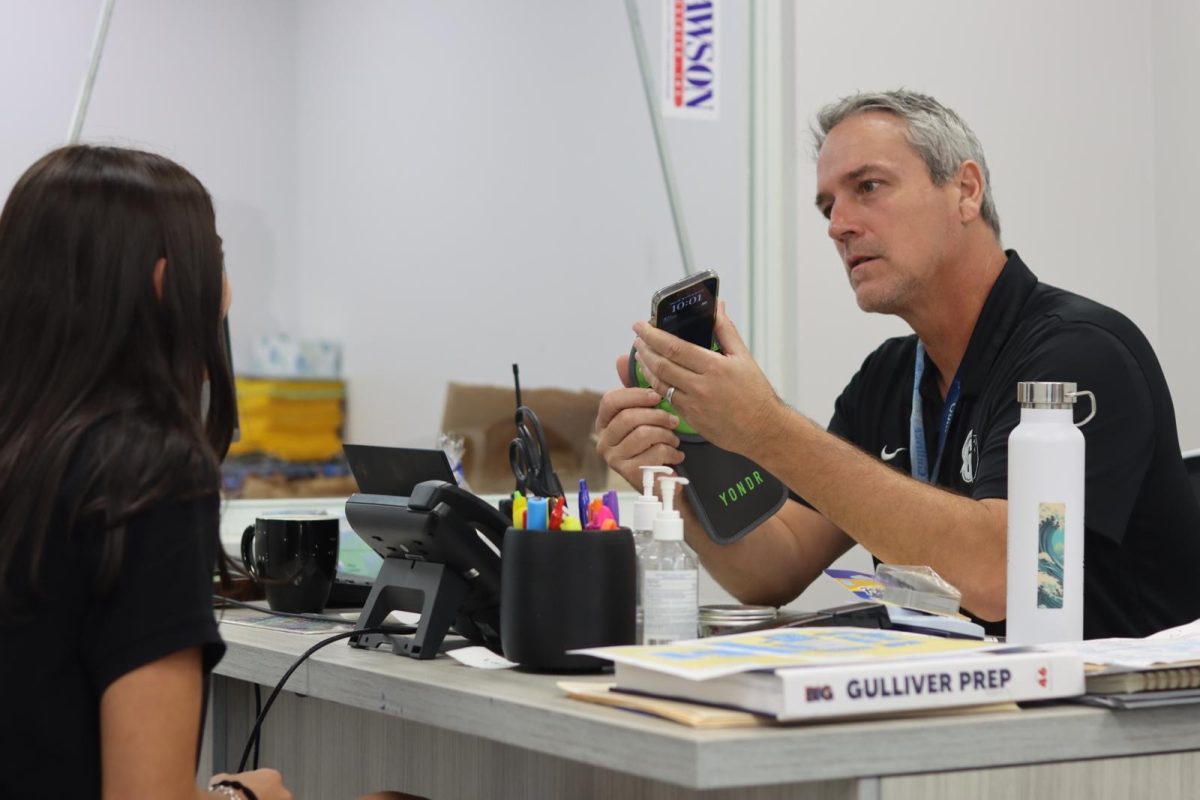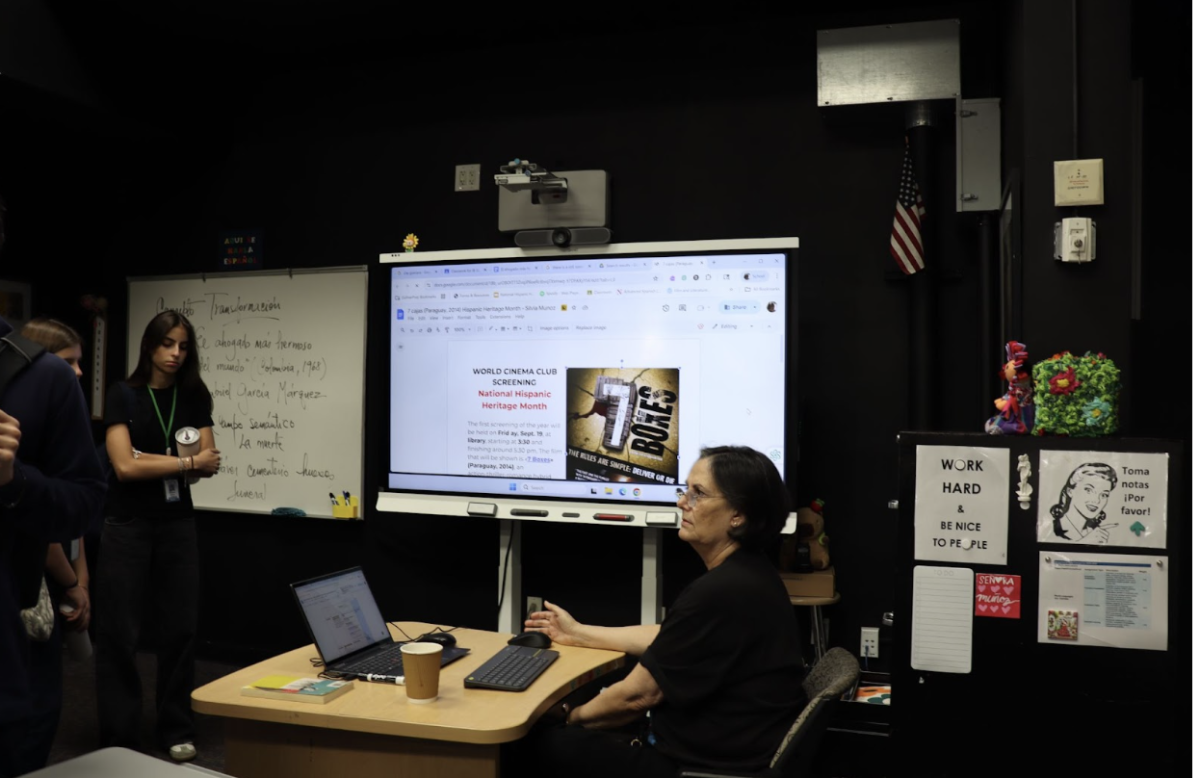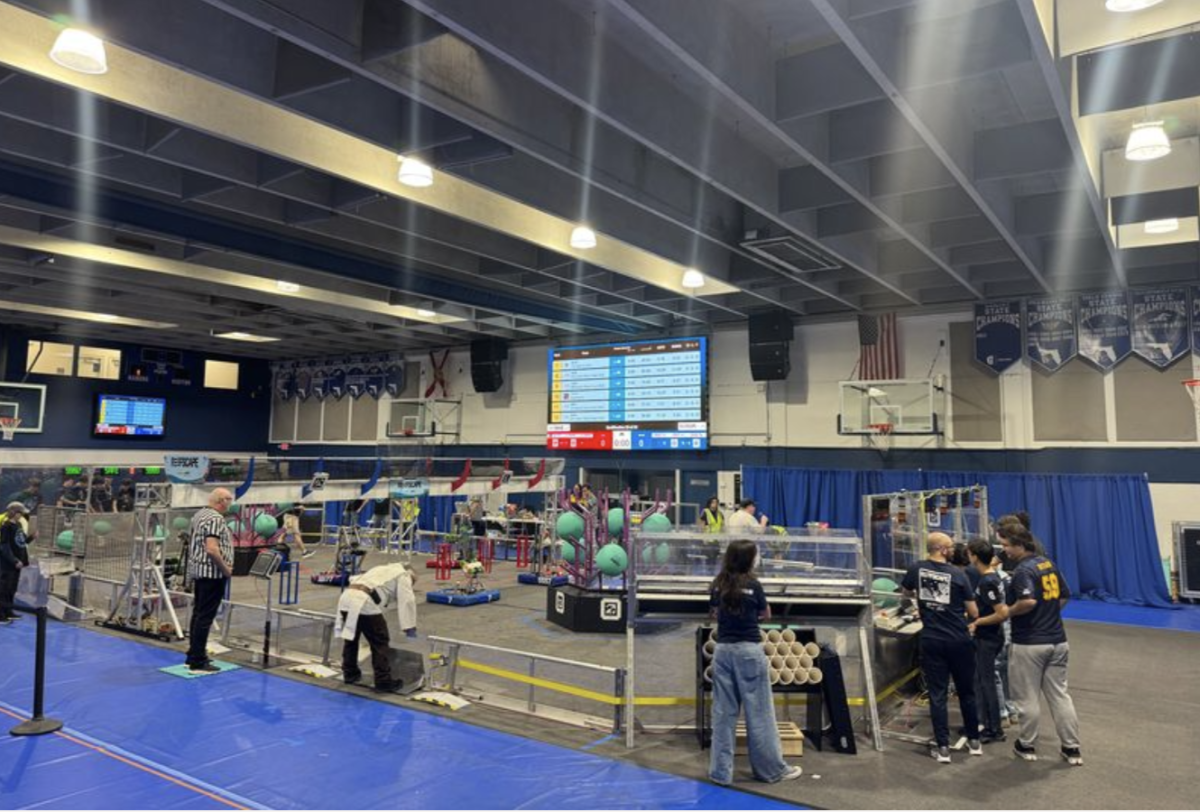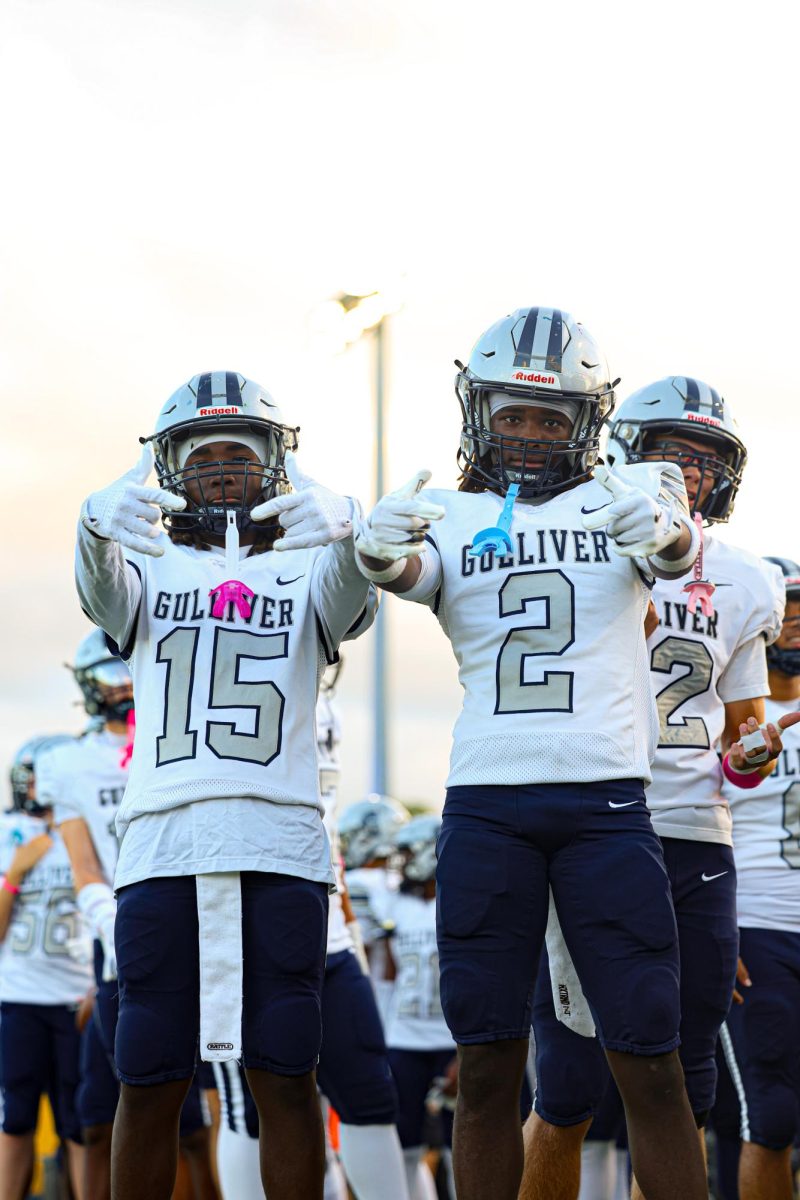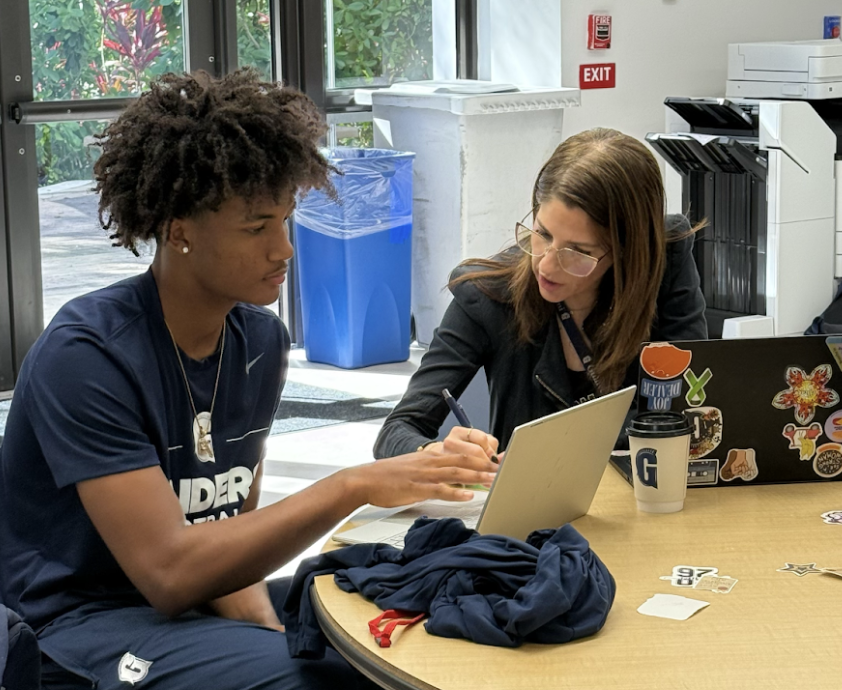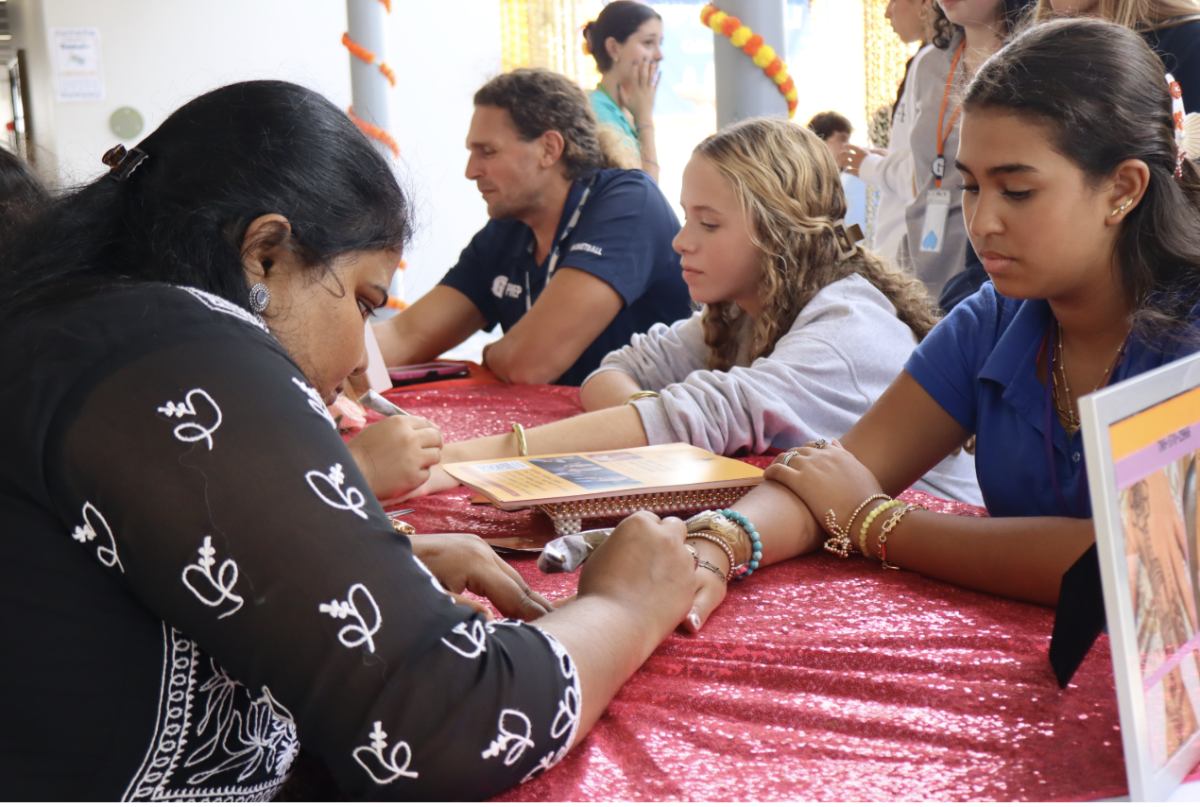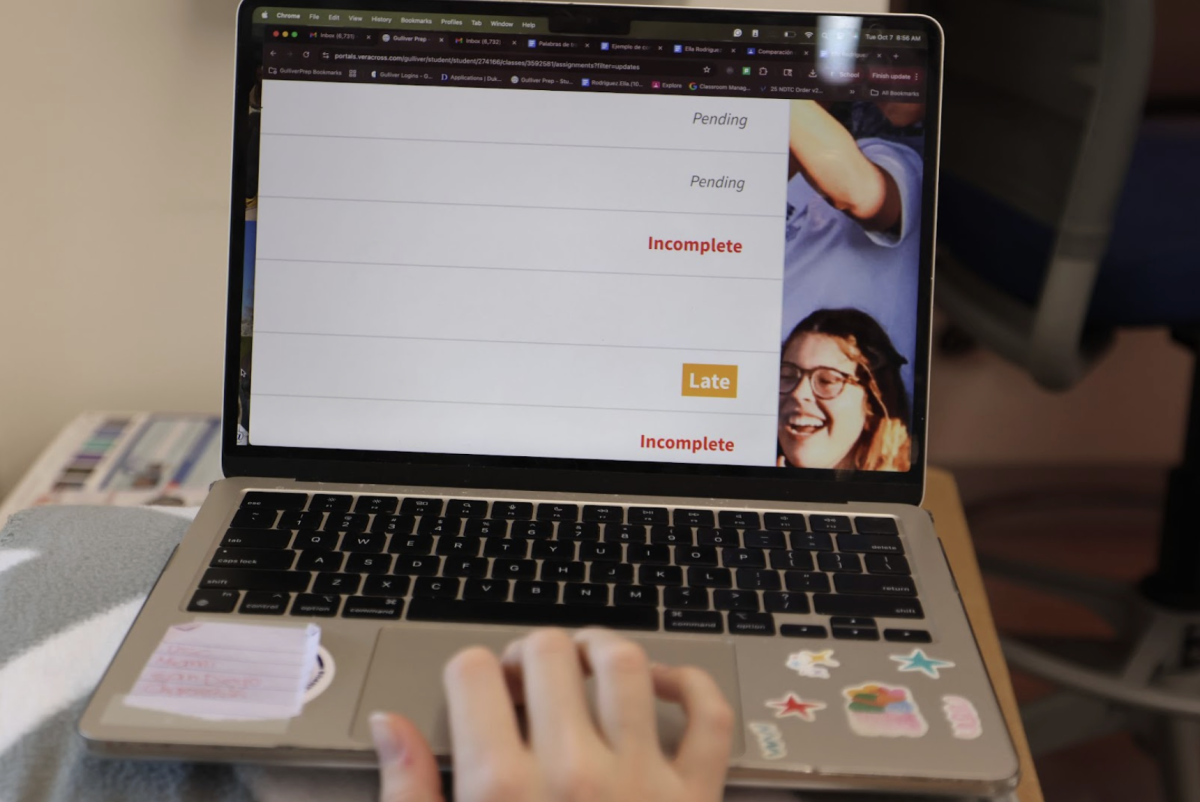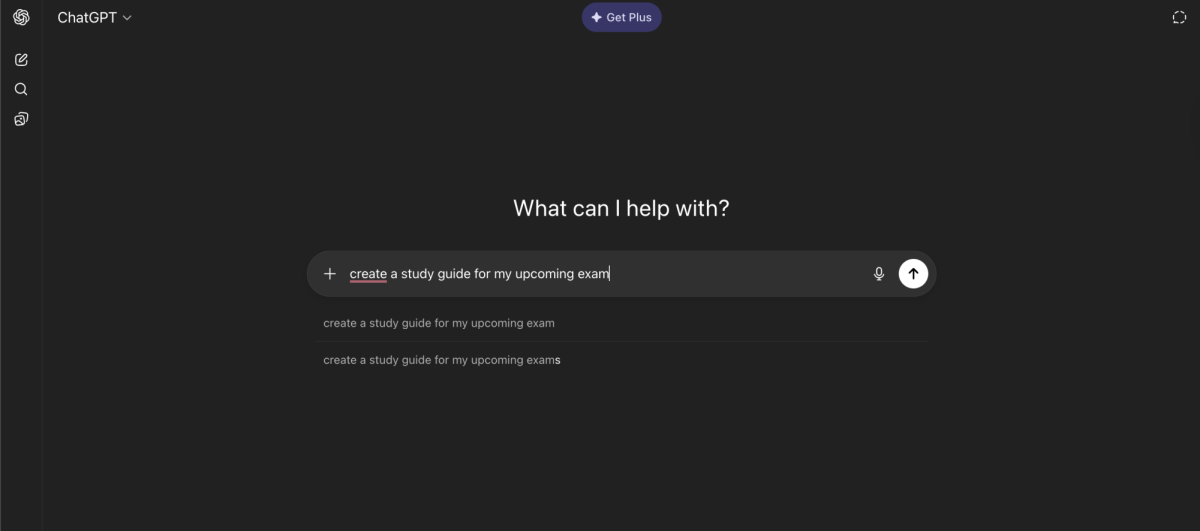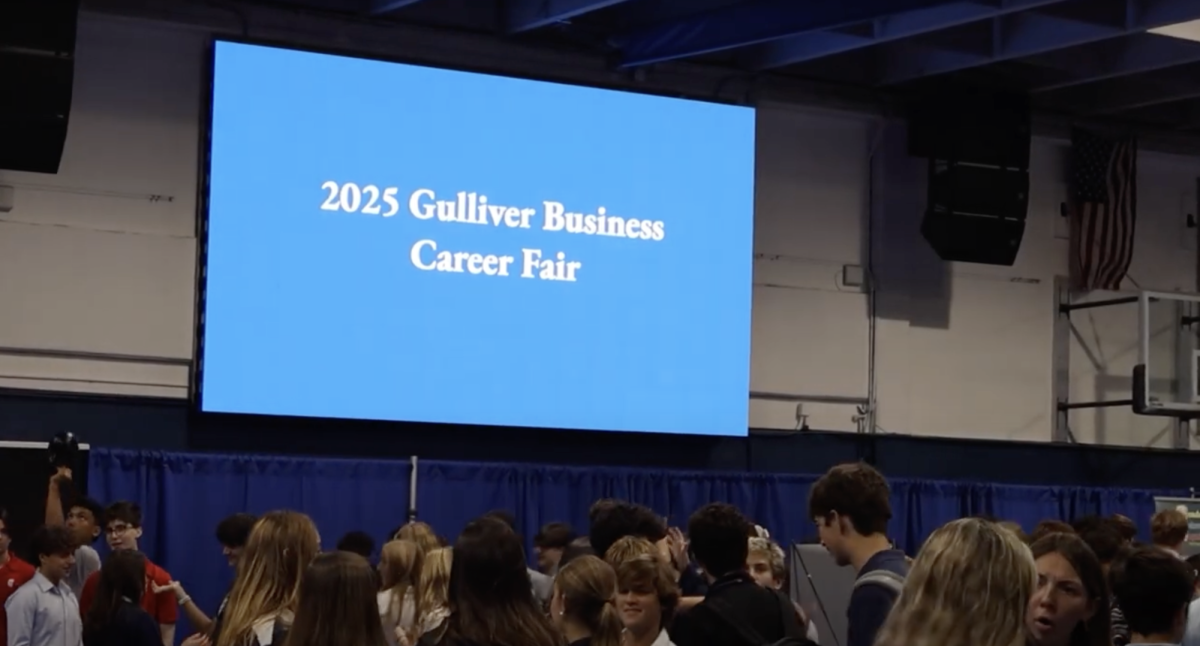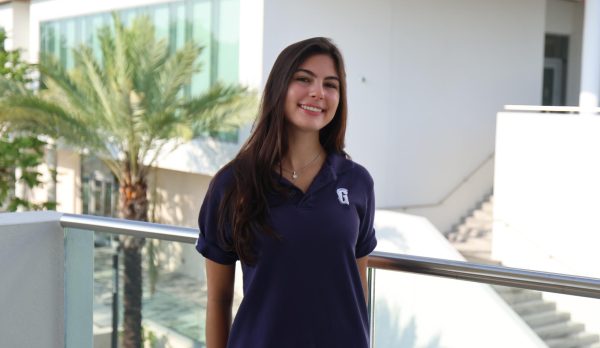After years of looking down at their cell phones during the school day,┬Ā students will be experiencing a phone-free campus beginning Tuesday, Aug. 20. The school administration aims to create a more focused learning environment, reducing the impact of social media distractions by implementing a system that keeps phones securely stored during the school day.┬Ā
The new phone-free campus policy requires all students ŌĆö grades 9-12 ŌĆö to turn off their phones and place them into Yondr Pouches, which will be locked and stored in students’ backpacks from the start of the school day until dismissal.┬ĀThe transition to a phone-free environment has raised questions among students, including how they will adapt.┬Ā
ŌĆ£WeŌĆÖve become so used to cellular devices; itŌĆÖs become an essential tool in our daily life,ŌĆØ Dean of Students Tyrone Sandaal said. ŌĆ£At the same time, weŌĆÖve also lived forever without it in the past.ŌĆØ
According to Sandaal, a number of students use social media to detach themselves from social situations, thus emphasizing the importance of a phone-free school environment.┬Ā Junior Angelina Gonzalez also agreed that the phone-free policy will be beneficial to the school community.┬Ā ┬Ā
ŌĆ£The pouches should help minimize distractions, allowing us to better focus and more eagerly participate in class,ŌĆØ Gonzalez said.
While some see potential benefits in reduced distractions and improved social interactions, other students feel that the policy may be overly restrictive, especially considering the maturity and responsibilities that come with being in high school.┬Ā
ŌĆ£I feel that we should be able to use our phones given that we are now in high school,ŌĆØ Ruiz said.
Despite some concerns, the school administration believes the policy will ultimately benefit student engagement and personal interactions.
ŌĆ£I believe the pros will far outweigh the cons,ŌĆØ Sandaal said.
The administration and student government plan to work together in order to navigate the implications with the new policy. As students learn to adapt to the new rule, some students, like Gonzalez, remain optimistic.
ŌĆ£ItŌĆÖll encourage us [students] to genuinely interact face to face which will build stronger friendships as well as improve our communication skills,ŌĆØ Gonzalez said.┬Ā┬Ā

